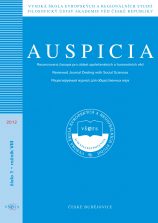Country comparison of central bank policies - quantitative easing as a useful tool or overrated policy
Country comparison of central bank policies - quantitative easing as a useful tool or overrated policy
Author(s): David Křížek, Kamila VeseláSubject(s): Economic policy, Financial Markets, Fiscal Politics / Budgeting
Published by: Vysoká škola evropských a regionálních studií, z. ú.
Keywords: Central bank; credit; GDP; Inflation; Monetary policy; Quantitative easing; Visegrad Four;
Summary/Abstract: The goal of the paper is to determine the effectiveness of quantitative easing in comparison with standard monetary policy methods. For this purpose, the analysis of time series and relative indices, regression and Arima analysis are used. Necessary secondary data for the analysis was obtained from national banks. Different responses have been recorded; however, they should lead to several goals, in particular to price stability based on an increase in inflation contributing to economic growth and so on. Based on the results, it can be concluded that nonstandard central bank measures do not explicitly have a significantly greater or better effect on the change in price level or on economic growth. If the expected effect does not occur to the extent anticipated or required, it is advisable to find other possible ways for central banks to respond to potential economic cycles. This could mean, for example, better or closer cooperation in the field of monetary and fiscal policies in times of crisis.
Journal: Auspicia
- Issue Year: 2022
- Issue No: 1
- Page Range: 39-62
- Page Count: 24
- Language: English

